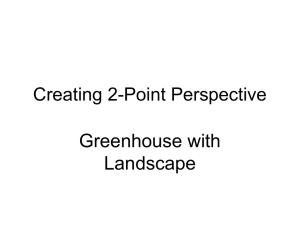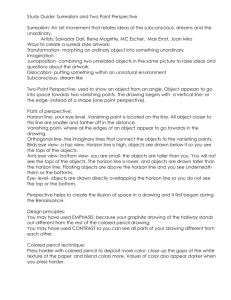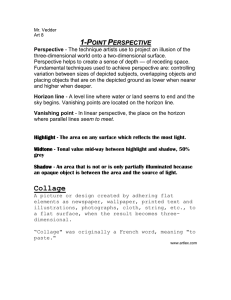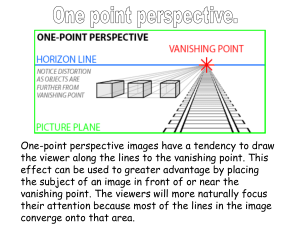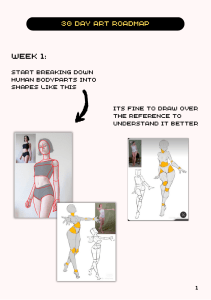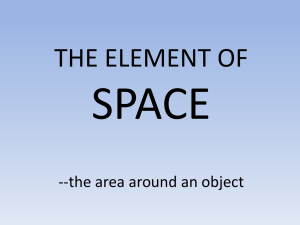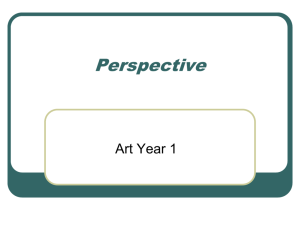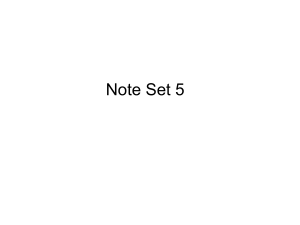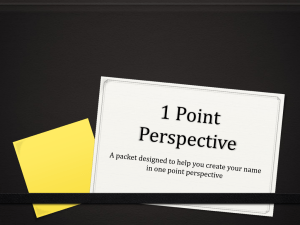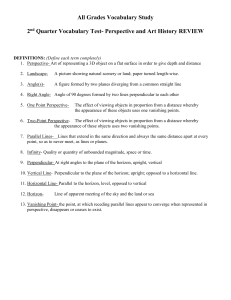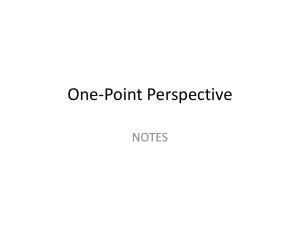Good for one point perspective- for people who learn best seeing
advertisement
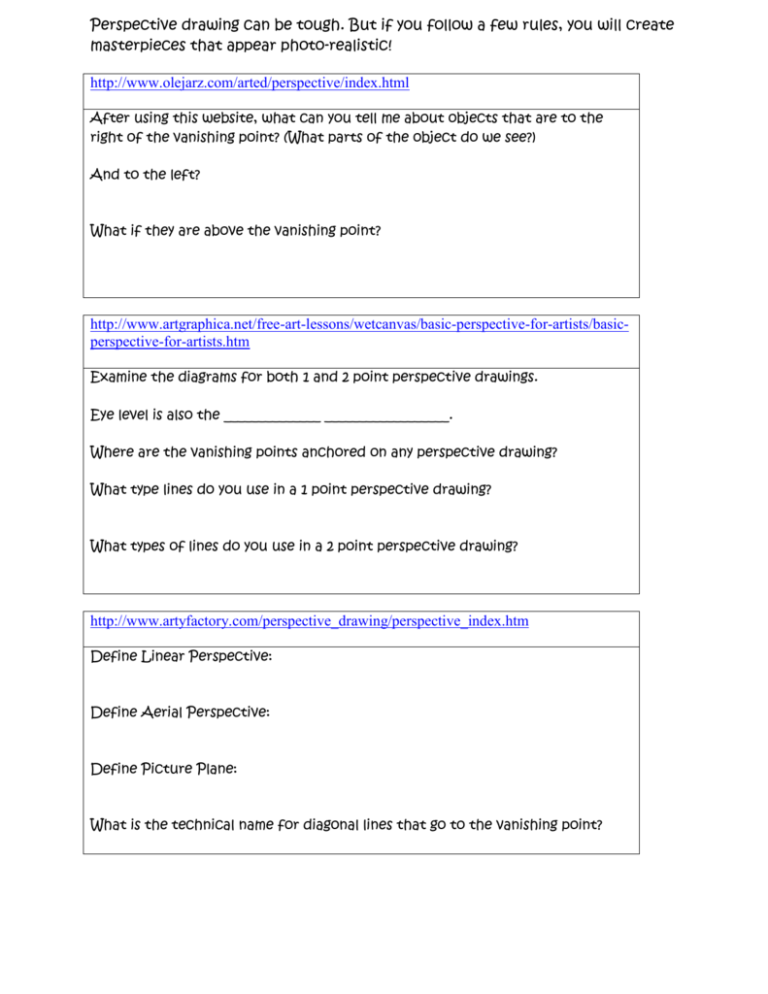
Perspective drawing can be tough. But if you follow a few rules, you will create masterpieces that appear photo-realistic! http://www.olejarz.com/arted/perspective/index.html After using this website, what can you tell me about objects that are to the right of the vanishing point? (What parts of the object do we see?) And to the left? What if they are above the vanishing point? http://www.artgraphica.net/free-art-lessons/wetcanvas/basic-perspective-for-artists/basicperspective-for-artists.htm Examine the diagrams for both 1 and 2 point perspective drawings. Eye level is also the ______________ __________________. Where are the vanishing points anchored on any perspective drawing? What type lines do you use in a 1 point perspective drawing? What types of lines do you use in a 2 point perspective drawing? http://www.artyfactory.com/perspective_drawing/perspective_index.htm Define Linear Perspective: Define Aerial Perspective: Define Picture Plane: What is the technical name for diagonal lines that go to the vanishing point? Fabulous examples of one and two point perspective and atmospheric perspective: good if you want to see what the final outcome should look like: http://www.andrewdiec.com/perspective.html http://mathforum.org/sum95/math_and/perspective/perspect.html http://www.bgfl.org/bgfl/custom/resources_ftp/client_ftp/ks1/art/perspective/index.htm http://www.drawingcoach.com/perspective-drawing.html Or just search: one point perspective, two point perspective Now, give that practice test another shot in the space below. What types of forms can you come up with? Pre-Test Instructions 1. Draw the horizon line 2. Add a vanishing point 3. Create a box that appears 3 dimensional below the horizon line 4. Create a box that appears 3 dimensional above the horizon line 5. Shade one box as if the sun is shining on one side of it. 6. Create two more boxes anywhere on the paper that overlap.

